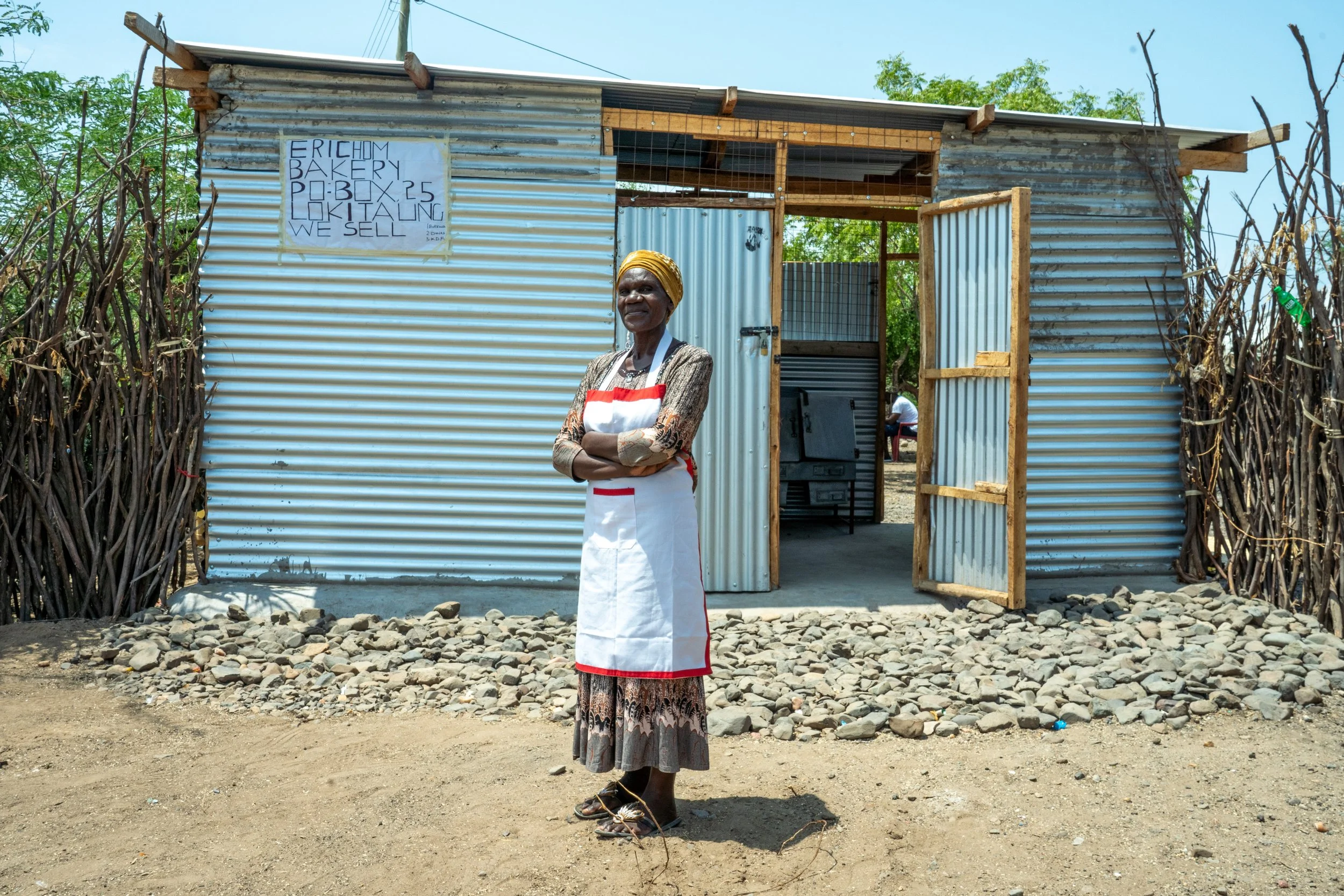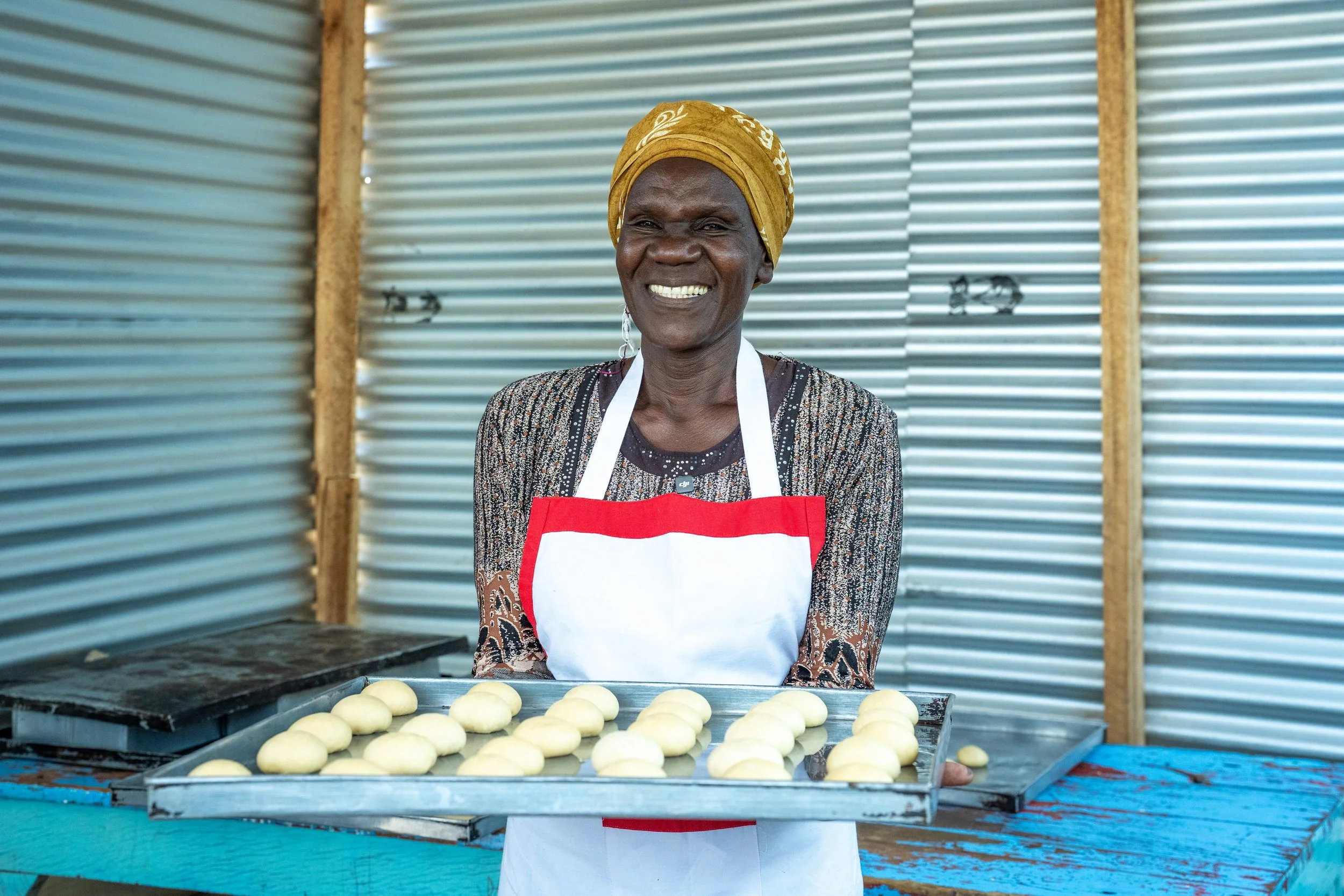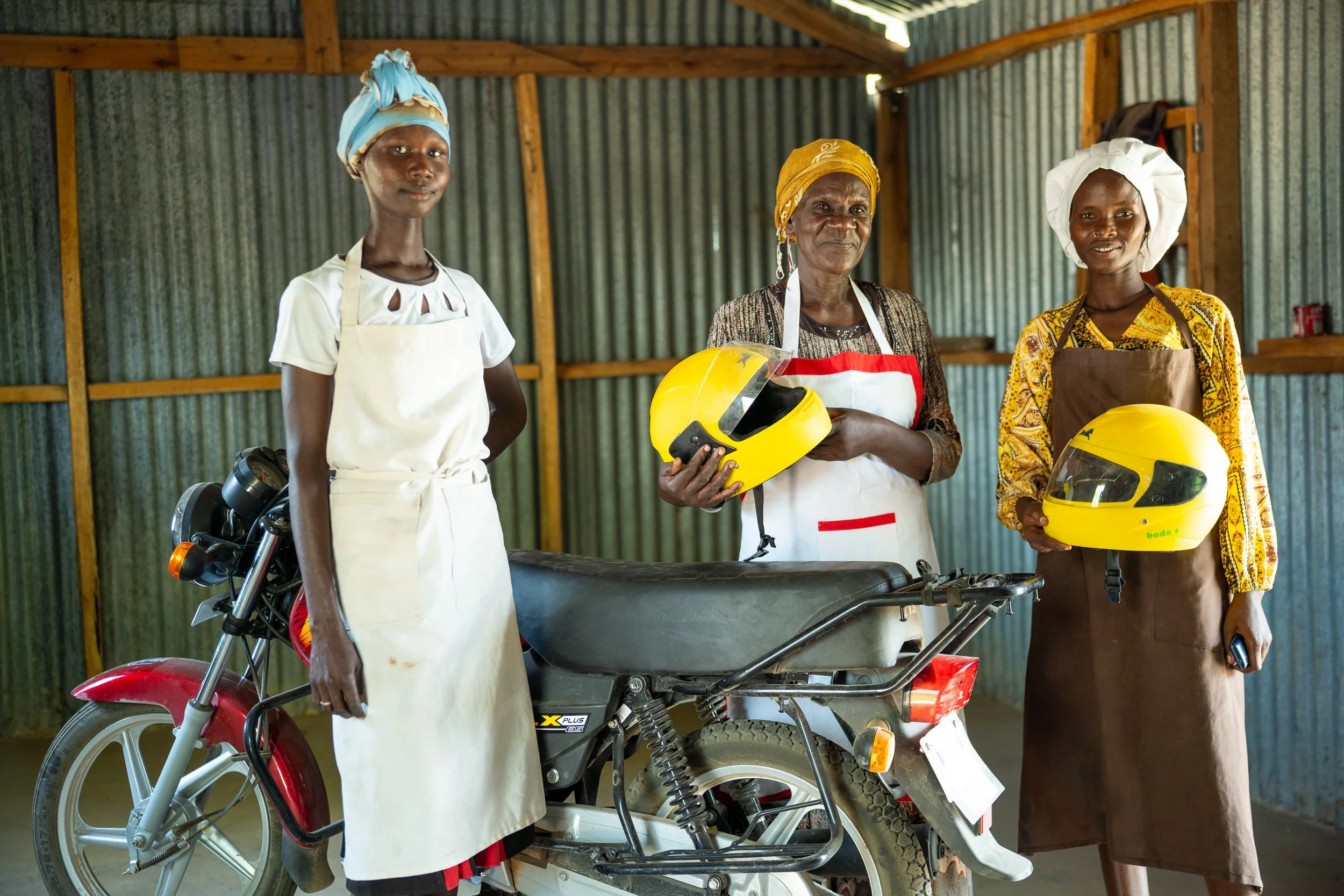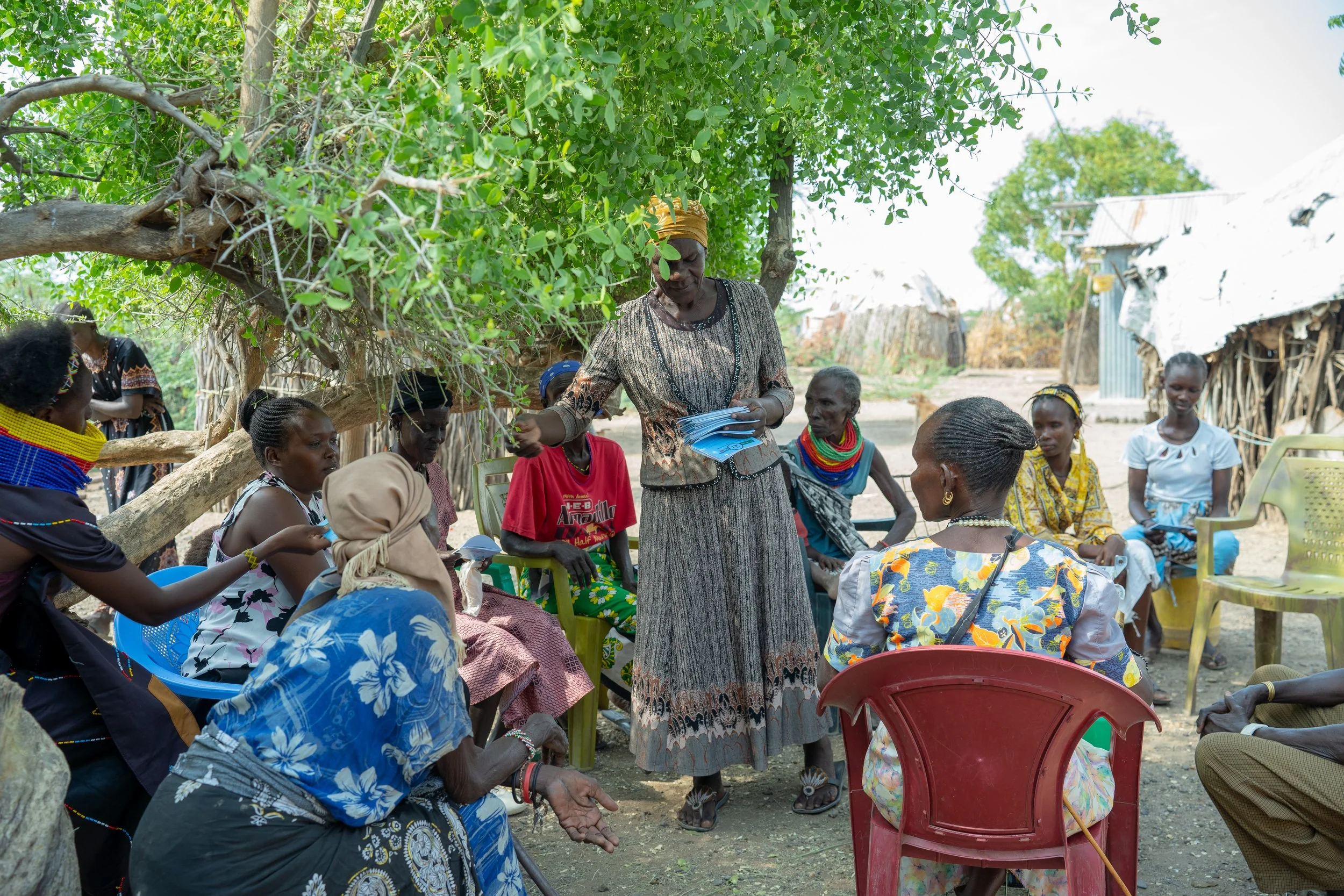Breaking bread, reducing stigma: the small bakery changing lives in Kenya
Agnes Omina stands outside Erichom Bakery in Lowarengak town in Turkana. Photo: Oxfam Kenya
Agnes Omina working at Erichom Bakery in Lowarengak town in Turkana. Photo: Oxfam Kenya
Agnes Omina and two bakery workers outside Erichom Bakery, Lowarengak, Turkana, with a motorcycle they were able to purchase to deliver bread and buy supplies. Photo: Oxfam Kenya
Sitting in the corner of a small bakery in Turkana in northwestern Kenya is a determined Agnes Omina.
Agnes is the group secretary of Erichom Self Help Group, which consists of twenty-three members including 21 women, 3 men, and 2 persons living with disabilities. Sadly one group member passed away earlier this year. The group has been active, albeit inconsistently, since 2019, when they came together at the hospital during routine check ups — all group members are living with HIV/AIDS.
When Oxfam and local partner TUPADO (Turkana Pastoralists Development Organisation) began looking for promising community-led businesses to support the establishment of Village Savings and Loans Associations (VSLAs) through the Australian Humanitarian Partnership drought and flood response in Kenya, the timing was perfect for Agnes and the group. They had just begun restructuring, and had been trying their hand at establishing a baking business on and off since 2023.
Agnes collects ledger books at the VSLA group meeting for Erichom Self Help Group in Lowarengak, Turkana. Photo: Oxfam Kenya
"The drought had also really affected us. We used to meet twice a month, but two months would go by without any savings at all for most of us,” Agnes said. “Fishing was hard because all the fish had moved further into the lake and we had no means of making money even for our daily needs. By August last year we had nearly lost all hope.”
The members were led through training on entrepreneurship, loans, savings, and business development. They then received a grant of KES 200,000 (AUD 2,400) from Oxfam, funded by the Australian Government.
The grant energised the group to double down on their efforts to establish a business in the area, leading to the birth of Erichom Bakery.
They invested half the funds into their project, enabling them to construct a basic building on a piece of land offered by one of the group members. This was a huge step up from the hospital kitchen they had been using before, which they had since been forced to vacate.
With the other half of the grant, they set up a microloan system for group members. This cash injection allowed members to take loans and invest in small ventures that could cater for their daily needs, healthcare, and food. With the boosted income, nutrition also improved drastically in their households, especially as nutrition supplements previously provided by the hospital were no longer as accessible.
A second grant of KES 100,000 (AUD 1,200) in June 2025 enabled the group to purchase a motorcycle, allowing them to source raw materials more quickly and to deliver their baked goods across a wider area. This expansion has helped them move beyond the market in Lowarengak and grow their customer base as far as Todonyang in the north.
As the bakery has grown, recognition has increased in the community and the group members have found renewed purpose. Where once the group faced shame, discrimination, stigma and fear due to their status, there is now dignity and confidence. They are energised to work and have something to look forward to. Their health has improved as they now have the means to buy medication, and eat frequent and balanced meals. Those living with disabilities also now have access to better equipment, greatly improving their quality of life and enabling them to contribute meaningfully in their communities.
The self-help group has also created a safe space for the wider community, particularly those also living with HIV/AIDS, to combat the unfortunately rampant problem of violence and attacks based on their status. The group offers a support system to help members and others recover and rebuild.
“We are not the same people who joined this program just over one year ago,” Agnes said. “And even in the event of another drought, we will not be affected as badly as last time, because we now have our business here, equipment, and the knowledge to carry us through.”





